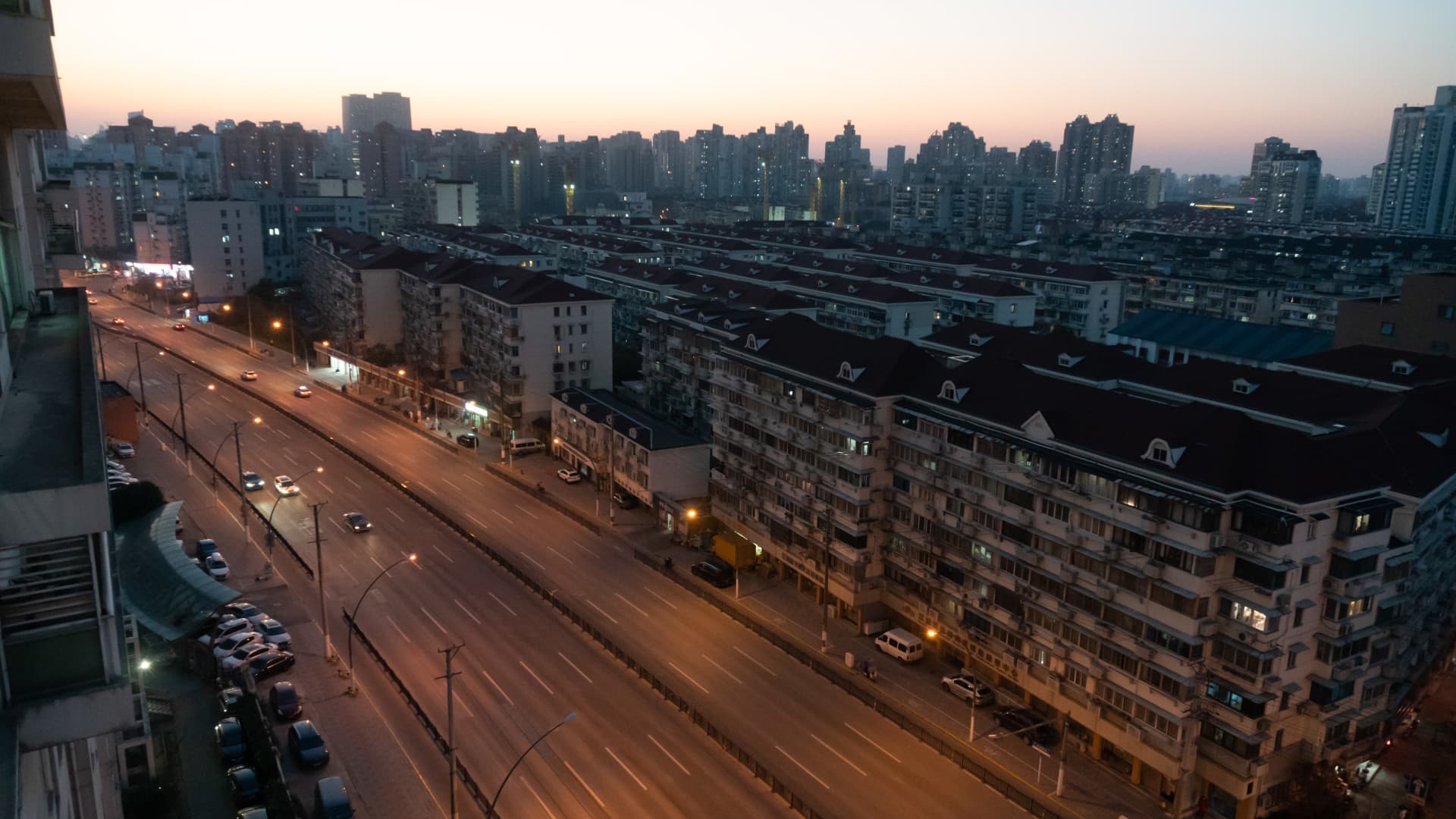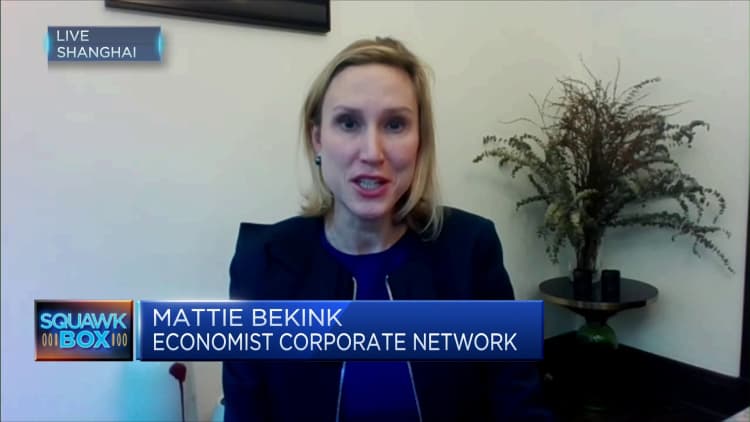
Shanghai’s main road lies empty during the evening rush hour on Thurs. Dec. 22, 2022, amid a wave of Covid infections.
Future Publishing | Future Publishing | Getty Images
BEIJING — It’s been about two weeks since mainland China abruptly ended most Covid controls, but the country still has a long way to go to return to a pre-pandemic normal.
In major cities Shanghai and Shenzhen, Friday morning rush hour traffic was extremely light, according to Baidu data.
Subway ridership in major cities as of Thursday remained well below the normal range, according to Wind Information.
“The significantly larger-than-expected COVID waves are leading to voluntary social distancing, as shown by the empty streets in Beijing in mid-December,” S&P Global Ratings analysts said in a report Wednesday.
“While this wave may ease in coming weeks, resurgence is probable during the Lunar New Year festival in late January 2023,” the analysts said. “It will be the first time in nearly three years that mass migration will resume in China as families congregate.”
On Dec. 7, Chinese authorities removed virus testing requirements and health code checks for domestic travel, among other relaxation in what had become an increasingly stringent zero-Covid policy. Meanwhile, local infections started to surge, especially in Beijing.

Within a week, more than 60% of one Beijing-based company’s staff tested positive for Covid, said Michael Hart, president of the American Chamber of Commerce in China.
“Two weeks later we’re able to have people coming back into the office,” he said Friday. “We basically went down real fast. Looks like we’re bouncing back really fast.”
Friday morning traffic in Beijing had recovered slightly from a week ago, putting the capital city back into first place as the most congested nationwide, Baidu data showed. But the figures showed the level of congestion in Beijing was still about 25% below where it was last year.
The exit of stringent COVID restrictions is positive for China’s economic activities. However, a resurgence of infections could diminish gains.
In a survey of nearly 200 AmCham China members from Dec. 16 to 19, more than 60% of respondents said they expected the impact of the latest Covid outbreak to be over in one to three months, Hart said.
Respondents did not report major supply chain issues, Hart said, noting many companies likely keep more inventory on hand after disruptions from the Shanghai lockdown earlier this year.
However, he said that most respondents said at this time they were unable to predict the long-term impact of the outbreak on their business.
As for foreign direct investment into China, Hart said he expected it would take about a year after travel fully reopens for such investment to start recovering.
China has yet to change its quarantine policy for international travelers to the mainland. Arrivals currently need to quarantine for five days at a centralized facility, followed by three days at home.
Travel on the rise
Other data indicated a pickup in domestic travel.
Bookings for flights out of Beijing from Monday to Wednesday rose by 38% from a week earlier, while economy prices rose by 20%, according to Qunar data cited by Chinese media Sina Finance. CNBC was unable to independently confirm the report.
Chinese travel site Trip.com said that from Dec. 7 to Dec. 18, flight bookings destined for the tropical island province of Hainan rose by 68% from the prior month. Hainan hotel bookings last week rose by 20% from the prior week, Trip.com said.
While Beijing city appears to be emerging from a Covid wave, outbreaks have hit other parts of the country.
In the southern cities of Shenzhen and Guangzhou, there are far fewer people on the streets, said Klaus Zenkel, vice president at the EU Chamber of Commerce in China and chairman of its South China chapter. He estimated road traffic had dropped by 40%, implying an infection rate of about 60%.
Most companies are following guidelines that only ask employees to stay home if they have fever or strong Covid symptoms, Zenkel said Thursday. “That means [the] work force will be reduced, only hope that not all get sick at the same time.”
Lack of data
There are few official numbers on the surge of infections or deaths from China’s latest Covid outbreak.
The World Health Organization’s emergencies director Mike Ryan said at a briefing Wednesday that China was likely unable to keep up with the surge of infections.
“In the case currently in China, what is being reported is relatively low numbers of cases in hospital or relatively low numbers of cases in ICUs, while anecdotally there are reports that those ICUs are filling up,” Ryan said, according to an official transcript.
“In a fast-moving wave, you might have reported three days ago that your hospital is okay,” he said. “This morning it may not be okay because the wave has come and all of a sudden you have very high force of infection.”
Most people have self-tested for the virus after the removal of most mandatory testing. Last week, the National Health Commission also stopped reporting asymptomatic cases.
“The government had been [holding] daily press conferences telling you how many people were infected,” AmCham’s Hart said. “Then they went to no information.”
He said the lack of official announcements has made it easier for rumors to spread. Hart also said interactions with government groups indicated their offices were being infected and implementing work-from-home at a similar pace to what businesses had seen.







